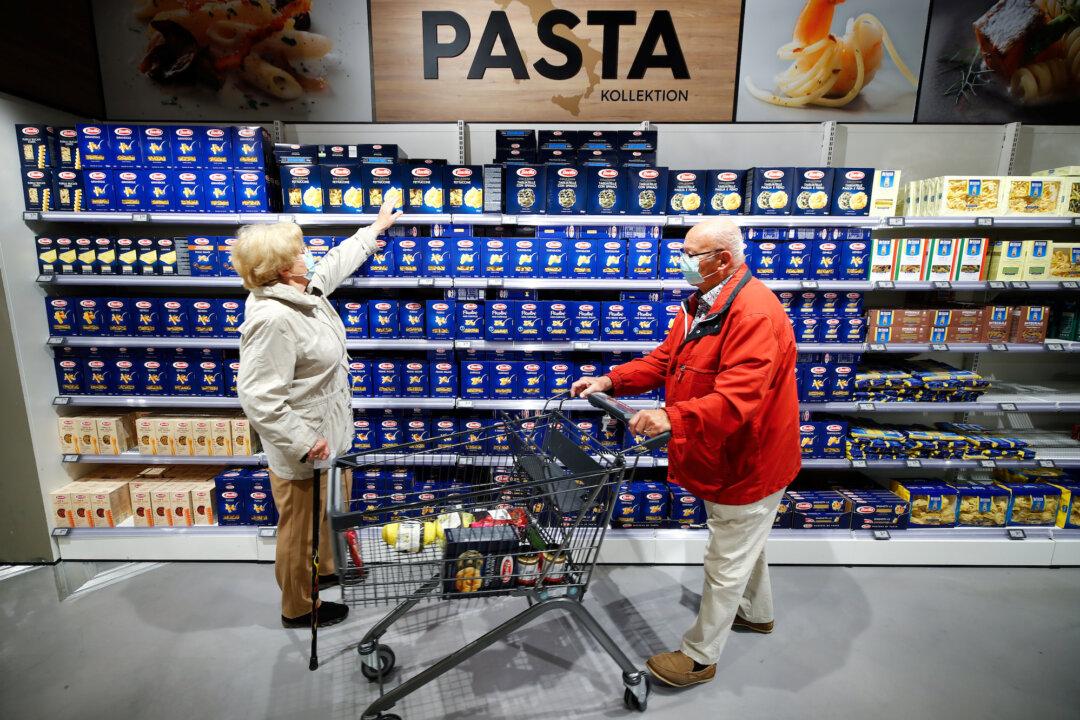Food price inflation in Germany soared to its highest level on record in July although the overall pace of price growth eased slightly, according to the country’s statistical agency.
Food prices rose by 14.8 percent in the year through July, Germany’s Federal Statistical Office, also known as Destatis, stated on Aug. 10. That’s the fastest pace of inflation since the agency started tracking the statistic several decades ago.





